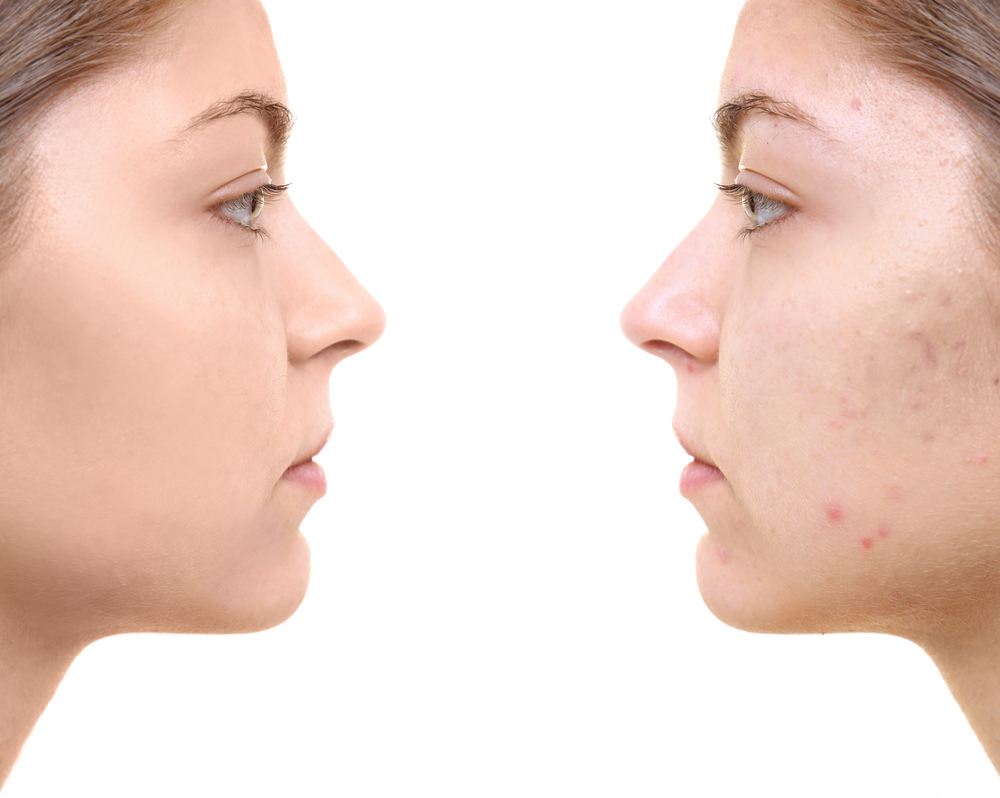
30
Dec
HORMONALLY INDUCED ACNE

As many of us are aware, acne is very common and presents in various subtypes. Hormonally induced acne, one of the more common subtypes of acne, is, unfortunately, both under-recognized and under-treated.
Generally, hormonally induced acne is characterized by deeper sometimes tender pimples occurring on the jawline, chin, forehead, and trunk of female acne patients. Typically this acne subtype flares reliably in relationship (before, often) to one’s menstrual cycle (but not always). Menstrual cycles may be regular or irregular. Importantly, if one’s menstrual cycles are irregular, in conjunction with acne and hirsutism (excess hair growth), one should consider evaluation by an endocrinologist or gynecologist for polycystic ovarian syndrome (PCOS) or other disorder.
In my experience I divide hormonally induced acne into the following typical presentations:
- Teens with significant acne flaring during the week before menstrual cycle
- Young women (age 20’s-30’s), often with no history of teenage acne, with rather abrupt onset of deeper tender pimples
- Pregnant women
- Peri-menopausal acne (sometimes occurring several years before or after menopause as well), women in the 40’s or 50’s with tender deeper pimples generally occurring on the chin, jawline and neck.
- Women of all ages who recently (2-3 months prior to onset of acne) switched birth control to include one of the following progesterones: norethindrone, levonorgestrel, etonorgesterel, among others.
Treatment of hormonally induced acne can be a bit of a challenge. Topical treatment generally is insufficient to improve hormonal acne, although mild hormonal acnemay be improved by clindamycin, azelaic acid, niacinamide, dapsone or other antimicrobials / anti-inflammatories.
Coordinating with one’s primary care physician, dermatologist, pediatrician, and/or gynecologist is crucial, as optimizing the selection of a low-androgenicity oral contraceptive can make a huge difference in the treatment of hormonal acne. The optimal progesterones for hormonal acne include desogestrel, norgestimate, and drospirenone. Lastly, spironolactone, a diuretic often employed in the off-label treatment of hormonal acne, may be used as mono-therapy or in combination with an oral contraceptive.
The final comment to make about hormonally induced acne is regarding the use of isotretinoin. Now, I love isotretinoin as much as the next dermatologist, however one must recognize its limitations as well. Although hormonal acne will improve during an isotretinoin course of therapy, it will generally recur after the treatment has completed. As a result, before female patients commence a course of isotretinoin, it is often sensible to optimize hormonal acne treatment to determine if the isotretinoin course is actually necessary.
If the above sounds like you or someone you care about, know that effective therapies exist and the prognosis is great.
